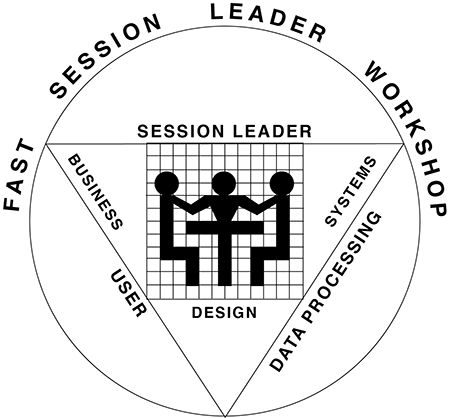October 2001

TERMS! | Gary Rush Facilitation
One of the major problems that I encounter while preparing for a workshop is terms. I have spent days, sometimes, defining terms with a client so that we were working towards the same goal. In one case, I spent five days preparing for a Strategic Planning workshop - most of which was spent defining "Objective" and "Strategy". In the technology industry - especially IT - terms are a major problem. With methods, each different method may use the same word but in a different way. Words like "function", "process", and "requirements" have different meanings to different people. There is no one correct definition. The word "requirements", in fact, has so many definitions, that I often refer to requirements as "stuff." It is different depending on to whom you talk.
In addition to synonyms, some words are used at different times. It helps to qualify the words. The words that most often cause the confusion are:
- Purpose
- Scope
- Objective
- Deliverable
The following illustrates the multiple uses along with their qualifying terms.
Purpose
A Purpose defines why something exists and is used for a business, project, or a workshop. Each is different.
Examples:
- Business Purpose: The purpose of home finance is to manage income, expenses, cash, and investments so that we maintain a positive cash flow and can plan for the future.
- Project Purpose: The purpose of this project is to analyze home finance and design an efficient system to automate and assist in managing finances.
- Workshop Purpose: The purpose of this workshop is to define the processes included in a home finance business activity.
Scope
The Scope defines what is included or excluded in a business, project, or workshop. It describes reach or breadth. Each is different. Purpose and Scope wording sometimes overlaps. That is acceptable.
Examples:
- Business Scope: The scope of home finance includes accounts payable, accounts receivable, investment management, tax management, budgeting, account management, and general accounting.
- Project Scope: The scope of this project is to analyze and deliver a system to automate the account management portion of home finance.
- Workshop Scope: The scope of this workshop includes the processes that are part of account management within home finance.
Objectives
Objectives define what is to be accomplished. These are generally defined for businesses, organizational structures, and projects. They describe depth and detail. For workshops, we accomplish "Deliverables" instead.
Examples:
- Business Objective: Assuming that home finance is a business, a business objective might be: "Save $100,000 in cash by January 1, 2005."
- Organizational Structure Objective: Assuming that home finance were a business with staff, a structure objective might be: "The organizational structure enables one hand-off for signature while supporting accepted audit constraints."
- Project Objective: Following the home finance automation project, a project objective could be: "Develop a system that allows real-time access to account information and eliminates the need for monthly reconciliation."
- Workshop Deliverable: For the workshop scope defined above, the deliverable would be: "A process model of the Account Management process within home finance."
Other Words
While facilitating, you will also encounter many other words that give you and the group problems. This becomes a continuous effort on your part. Some examples that I have encountered are:
- Customer - I spent three days with one company helping them define a "customer". Each department had a different definition. We finally dropped the word and used specific terms.
- Project Names - I conducted a one day workshop recently where one of the major problems was the fact that some people used a software name as the project name and some used the software name to refer only to the software product. This really confused the scope of the project because it was different depending on to whom you spoke, yet had the same name.
- Case - I was asked by a juvenile court system to help with a communication problem. District attorneys used the word "case". Caseworkers used the word "case". Police officers used the word "case". Unfortunately, it meant something very different to each group. District attorneys meant each time they appeared in front of a judge - an incident. Police officers meant each arrest. Caseworkers meant the juvenile. Until they changed their terms to be specific, they frequently miscommunicated.
Summary
As a facilitator, you are a communication enabler. You need to ensure that the terms are not a problem - that they are specific. Be very careful when discussing a workshop or project - qualify the words. Question terms constantly - assumptions about words are often one of the biggest problems you face while facilitating. Make groups be specific. Listen for the confusion - it is more common than you may think. Your groups don't listen for terminology problems - they think that they know what they are talking about. They do. It is just that the others don't. If you clarify terms and make the client clarify terms, you and your client will be happier and it will be easier for you to facilitate the workshop. ![]()

